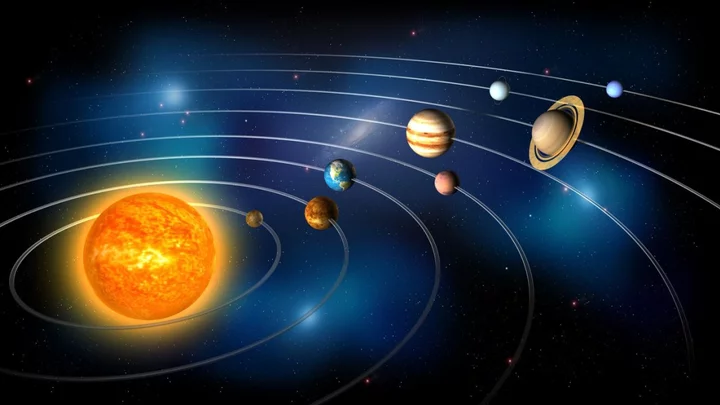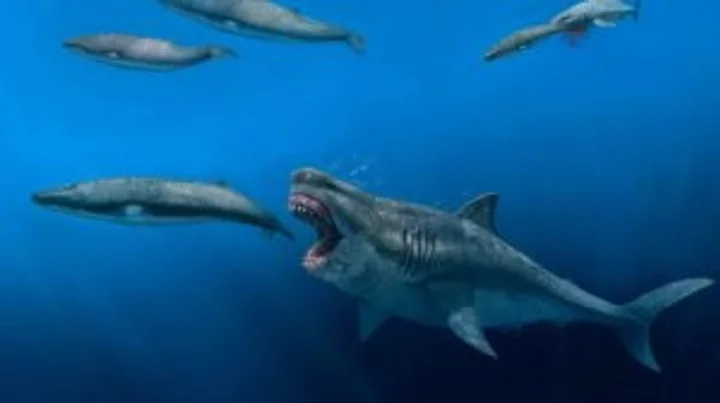
Time ran five times slower in the early universe, new study finds
New findings have revealed that time ran five times slower in the early universe, after scientists published new research into quasars. A quasar is a luminous active galactic nucleus and studying them has allowed scientists to measure time. The variation in brightness of quasars from the early universe has been measured to determine time dilation back to a billion years after the Big Bang. Experts have found that there was an era in which clocks moved five times slower than they do in the present day. The findings come as a relief to many cosmologists who have been perplexed by previous results that have come from studying quasars. The discovery that the universe is expanding led to the theorisation of “time dilation” – the idea that time moved slower the smaller the universe was. Sign up to our free Indy100 weekly newsletter Professor Geraint Lewis of the University of Sydney, the lead author of a new study, said in a statement: “Looking back to a time when the universe was just over a billion years old, we see time appearing to flow five times slower.” He continued, explaining: “If you were there, in this infant universe, one second would seem like one second – but from our position, more than 12 billion years into the future, that early time appears to drag.” To measure the extent of time dilation, scientists turned to quasars, as they are able to measure their change in brightness over a period they can estimate. The most distant quasar that is visible is 13 billion back in time and can still be seen despite its far distance. Their brightness varies due to turbulence and lumpiness in their accretion disks. Lewis explained the phenomenon as being “a bit like the stock market”. He said: “Over the last couple of decades, we’ve seen there is a statistical pattern to the variation, with timescales related to how bright a quasar is and the wavelength of its light.” Have your say in our news democracy. Click the upvote icon at the top of the page to help raise this article through the indy100 rankings.
2023-07-04 23:58

Scientists discover secret planet hiding in our solar system
There are eight planets in our solar system – plus poor old Pluto, which was demoted in 2006 – but what if there were more? Turns out that might be the case. Astronomers have calculated there is a 7 per cent chance that Earth has another neighbour hiding in the Oort cloud, a spherical region of ice chunks and rocks that is tens of thousands of times farther from the sun than we are. “It’s completely plausible for our solar system to have captured such an Oort cloud planet,” said Nathan Kaib, a co-author on the work and an astronomer at the Planetary Science Institute. Sign up to our free Indy100 weekly newsletter Hidden worlds like this are “a class of planets that should definitely exist but have received relatively little attention” until now, he said.. If a planet is hiding in the Oort cloud, it’s almost certainly an ice giant. Large planets like Jupiter and Saturn are generally born as twins. They have huge gravitational pulls of their own, however, and sometimes destabilise one another. That could have led to a planet to be nudged out of the solar system entirely – or exiled to its outer reaches, where the Oort cloud resides. “The survivor planets have eccentric orbits, which are like the scars from their violent pasts,” said lead author Sean Raymond, researcher at the University of Bordeaux’s Astrophysics Laboratory. That means that the Oort cloud planet could have a significantly elongated orbit, unlike the near-perfect circle Earth tracks around the sun. Trouble is, when things are that far away, they’re pretty difficult to spot. “It would be extremely hard to detect,” added Raymond. “If a Neptune-sized planet existed in our own Oort cloud, there’s a good chance that we wouldn’t have found it yet,” said Malena Rice, an astronomer at MIT not involved in this work. “Amazingly, it can sometimes be easier to spot planets hundreds of light-years away than those right in our own backyard.” Time to crack out the telescope. Have your say in our news democracy. Click the upvote icon at the top of the page to help raise this article through the indy100 rankings.
2023-07-04 23:15

Scientists discover that megaladon's went extinct because of themselves
Scientists believe they have discovered the cause of the megalodon's extinction – and no, it’s not Jason Statham. Experts have been conducting research on fossils of teeth from the biggest species of shark the world has ever seen, which went extinct around 3.6 million years ago and measured at least 15 metres long. Research published in the journal Proceedings of the National Academy of Sciences explains that the animal was actually partially warm-blooded. Unlike most cold-blood sharks, the body temperature is thought to have been around 27 degrees. The temperature is higher than the sea temperatures around the time. Sign up to our free Indy100 weekly newsletter Study co author Robert Eagle, who is professor of marine science and geobiology at UCLA, said [via CNN]: “We found that O. megalodon had body temperatures significantly elevated compared to other sharks, consistent with it having a degree of internal heat production as modern warm-blooded (endothermic) animals do.” They were able to prove that the animals were warm-blooded by analysing how carbon-13 and oxygen-18 isotopes were closely bonded together in the fossilised teeth. Senior study author Kenshu Shimada is a paleobiologist at DePaul University in Chicago, who said: “A large body promotes efficiency in prey capture with wider spatial coverage, but it requires a lot of energy to maintain. “We know that Megalodon had gigantic cutting teeth used for feeding on marine mammals, such as cetaceans and pinnipeds, based on the fossil record. The new study is consistent with the idea that the evolution of warm-bloodedness was a gateway for the gigantism in Megalodon to keep up with the high metabolic demand.” The fact it was warm-blooded means that regulating body temperature could have been the cause of its eventual demise. The Earth was cooling when the animal went extinct, which could have been a critical factor. “The fact that Megalodon disappeared suggests the likely vulnerability of being warm-blooded because warm-bloodedness requires constant food intake to sustain high metabolism,” Shimada said. “Possibly, there was a shift in the marine ecosystem due to the climatic cooling,” causing the sea level to drop, altering the habitats of the populations of the types of food megalodon fed on such as marine mammals and leading to its extinction. “One of the big implications for this work is that it highlights the vulnerability of large apex predators, such the modern great white shark, to climate change given similarities in their biology with megalodon,” said lead study author Michael Griffiths, professor of environmental science, geochemist and paleoclimatologist at William Paterson University. Have your say in our news democracy. Click the upvote icon at the top of the page to help raise this article through the indy100 rankings.
2023-07-04 21:54

Apple loses London appeal in 4G patent dispute with Optis
LONDON Apple Inc infringed two telecommunications patents used in devices including iPhones and iPads, London's Court of Appeal
2023-07-04 21:52

Kyle Richards and Mauricio Umansky deny they are divorcing
A pair of "Real Housewives" stars are pushing back on speculation they are divorcing.
2023-07-04 21:26

Israeli lawmakers give initial nod to new judicial overhaul bill - Knesset
JERUSALEM (Reuters) -Israeli lawmakers on Tuesday gave an initial nod to a new bill that limits some of the Supreme
2023-07-04 21:26

Meta loses as top EU court backs antitrust regulators over privacy breach checks
By Foo Yun Chee BRUSSELS (Reuters) -Antitrust authorities overseeing firms such as Facebook owner Meta Platforms are entitled to also
2023-07-04 19:25

The world's shortest IQ test will reveal how average your intelligence is in 3 questions
IQ tests offer a formula that allows you to compare yourself to other people and see how average (or above average) your intelligence is. The Cognitive Reflection Test (CRT) is dubbed the world’s shortest IQ test because it consists of just three questions. It assesses your ability to identify that a simple problem can actually be harder than it first appears. The quicker you do this, the more intelligent you appear to be. Here are the three questions: 1. A bat and a ball cost £1.10 in total. The bat costs £1.00 more than the ball. How much does the ball cost? 2. If it takes five machines five minutes to make five widgets, how long would it take 100 machines to make 100 widgets? 3. In a lake, there is a patch of lily pads. Every day, the patch doubles in size. If it takes 48 days for the patch to cover the entire lake, how long would it take for the patch to cover half of the lake? Sign up to our free Indy100 weekly newsletter Here is what a lot of people guess: 1. 10 pence 2. 100 minutes 3. 24 days These answers would be wrong. When you're ready, scroll down for the correct answers, and how you get to them: 1. The ball would actually cost 5 pence or 0.05 pounds If the ball costs X, and the bat costs £1 more, then it will be: X+£1 Therefore Bat+ball=X + (X+1) =1.1 Thus 2X+1=1.1, and 2X=0.1 X= 0.05 2. It would take 5 minutes to make 100 widgets. Five machines can make five widgets in five minutes; therefore one machine will make one widget in five minutes too. Therefore if we have 100 machines all making widgets, they can make 100 widgets in five minutes. 3. It would take 47 days for the patch to cover half of the lake If the patch doubles in size each day going forward, it would halve in size going backwards. So on day 47, the lake is half full. In a survey of almost 3,500 people, 33 per cent got all three wrong, and 83 per cent missed at least one. While this IQ test has its shortcomings – its brevity, and lack of variation in verbal and non-verbal reasoning - only 48 per cent of MIT students sampled were able to answer all three correctly. Have your say in our news democracy. Click the upvote icon at the top of the page to help raise this article through the indy100 rankings.
2023-07-04 18:21

Senegal President Macky Sall says he won't run for third term
Rumours he would run again had fuelled several deadly protests over the years.
2023-07-04 10:27

Joey Votto After Yet Another Reds' Win: Hello, Fellow Kids
Joey Votto is a cool guy with an untucked shirt.
2023-07-04 10:26

SPAC seeking merger with Trump's media company agrees to settlement with SEC
Blank-check firm Digital World Acquisition Corp said it reached an agreement in principle with the Securities and Exchange Commission after the commission began investigating the company's merger deal with Truth Social owner Trump Media & Technology Group.
2023-07-04 08:25

NFL refuses to take the blame for slippery Chiefs-Eagles Super Bowl
Super Bowl 57 between the Kansas City Chiefs and Philadelphia Eagles was hindered by the slippery turf. The NFL believes it's the players' fault for the conditions.Super Bowl 57 between the Kansas City Chiefs and Philadelphia Eagles was nothing short of entertaining. Whether it was Eag...
2023-07-04 06:28
